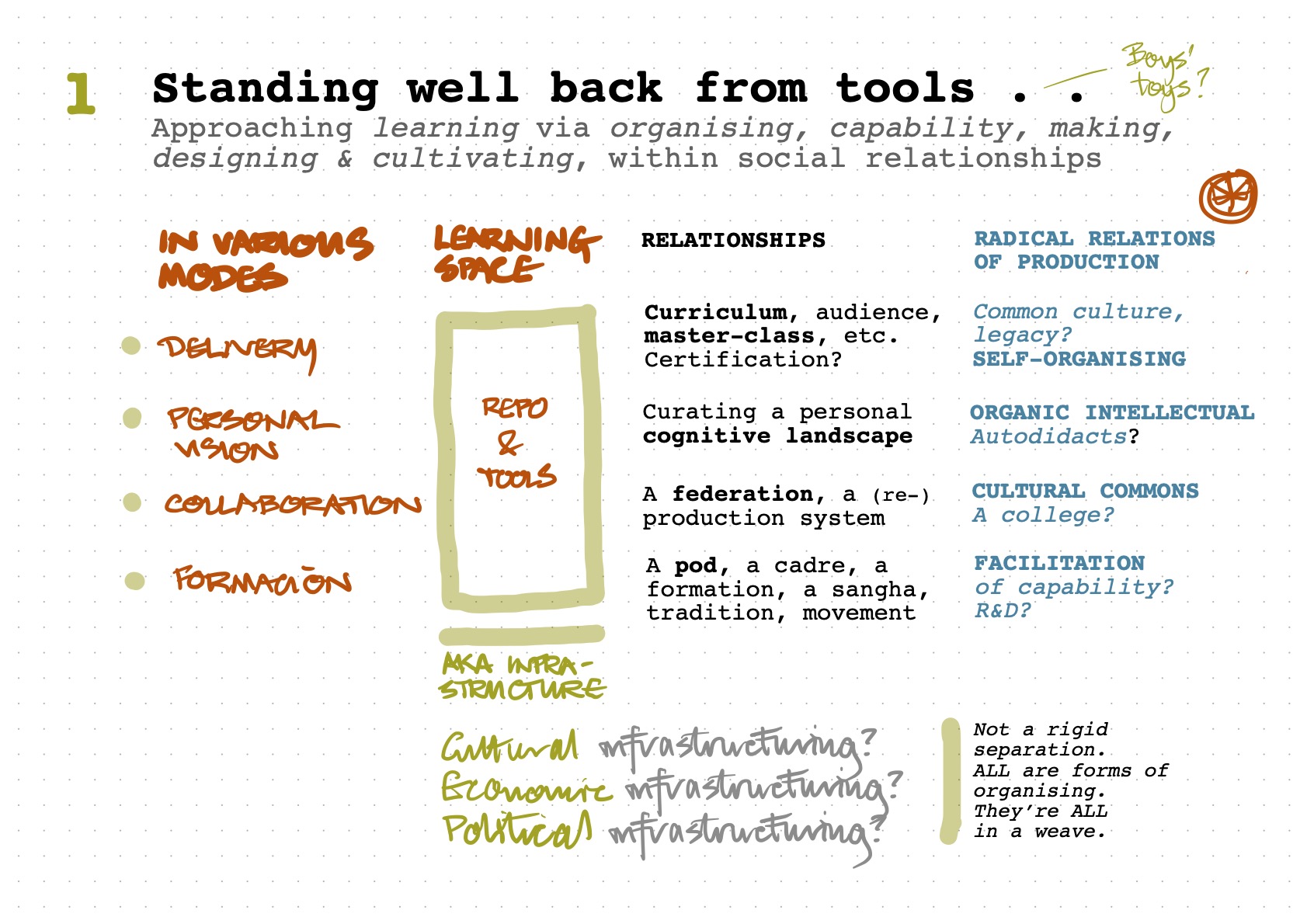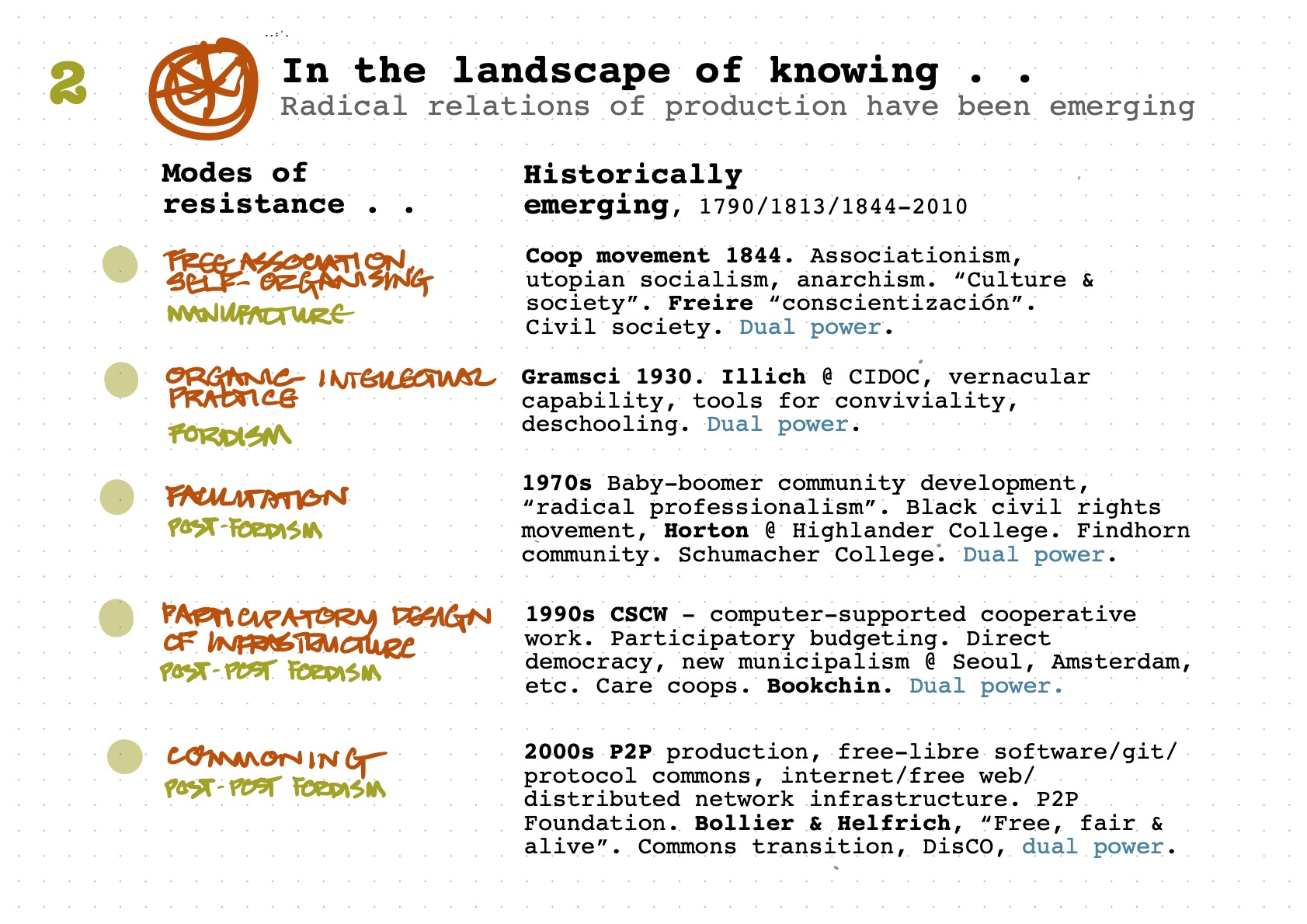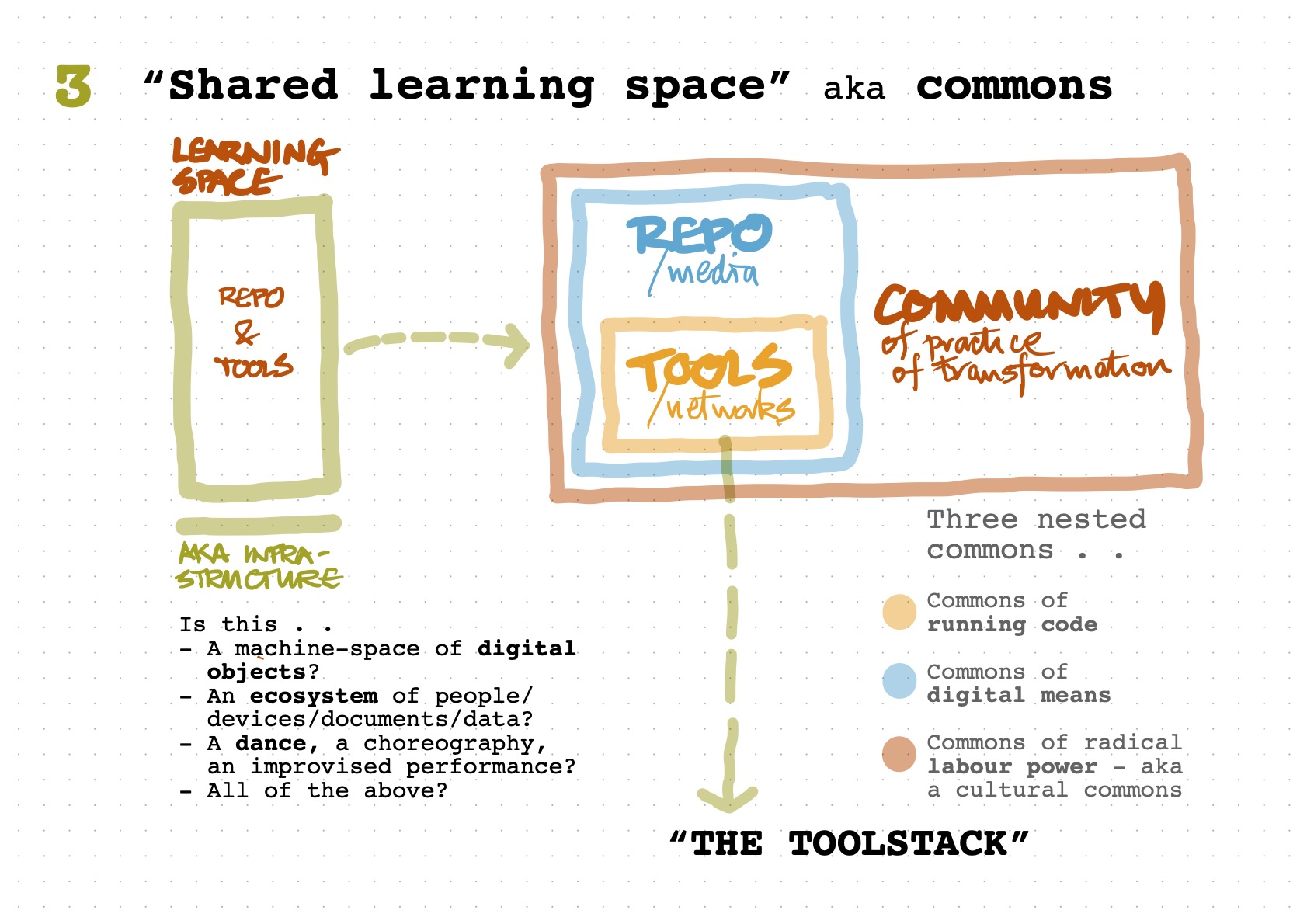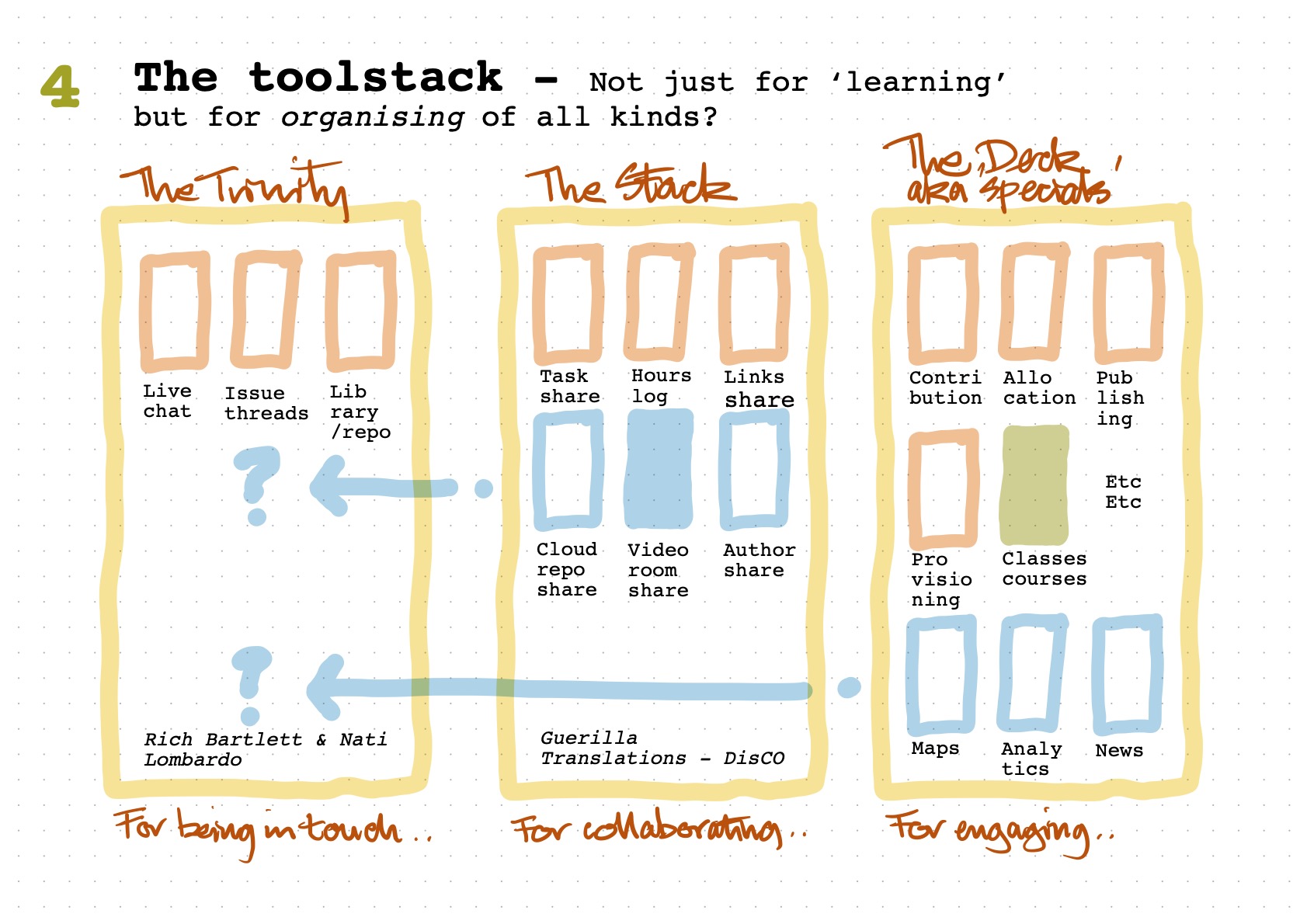In constructing learning space, diving into a specialised bundle of tools for delivering content to an audience might not be the move to make. There might be a bundle of more generic tools, for p2p collaborating and coproduction, that will do a large part of the work involved in researching, communicating understandings and making discoveries. In a collective. Under social relations of commoning.
Here we're operating with something like Illich's notion of tools Tools for conviviality. Illich doesn't mean discrete technical elements (code, apps, machines, devices, material artefacts). He means something more like institutions: broad and durable social arrangements that furnish affordances for participants to do various necessary things, as a commons of means. 'Tools for conviviality' are **practices**, or spaces which furnish affordances for practices. Spaces
The reasoning here was developed originally in a context of discussing 'shared learning spaces' and digital means. This remains relevant because in the context of 'infrastructuring' we're discussing commons of digitally mediated spaces that facilitate Formación.
Shared learning spaces
Below we use four slides from that 'learning spaces' discussion pdf ![]() .
.
* Slide 1 - highlighting differing modes of ‘learning’, with varying dynamics . . • individual and collective • exploratory and authoritative • pedagogy and 'peergogy'.
> Differing modes call for ‘learning spaces’ **furnished in different ways**? To be added xxx

1 Standing well back from tools
* Slide 2 - capability in transformative practice rather than ‘learning’, highlighting historical discoveries across 250 years, of social relations in the production of movement capability.
> These give us today a repertoire of relationships **to build into radical forms of cultural process**: • free association • organic intellectual practice • facilitation • participatory design of infrastructure • commoning. We should design and evaluate our forms of communication and interaction thro these, which intrinsically will build **capability in transformative practice**? aka 'learning'? formaciòn?

2 Relations of production in knowing, evolving & cultivated across generations
* Slide 3 - asking questions about **the nature of ‘the space’** through which learning might be enacted • A *machine-space* of digital objects? • An *ecosystem* of humans/devices/media/documents/data? • *A dance*, an improvised performance?
> Could be all of these - but each calls for a different kind of infrastructure, and enables a different kind of participation. Weaving them all together in use is also an area of skills, ranging *from facilitation to pedagogy to media design*.

3 - The nature of (digital) learning space
* Slide 4 - outlining a **‘toolstack’** model in three parts, derived from experiments over a decade or so. Digital toolstack • Rich Bartlett & Nati Lombardo (a generic and basic **‘trinity’** of tools for communicating, informing and deliberating) • Guerrilla Translations (a **‘stack’** of tools that incorporates the trinity, needed for purposeful, effective, systematic co-working). Plus . . • A further field of tools - a 'deck' of **‘specials’** - that might vary across differing domains of activity.

4 Toolstack map - with developments
The basic proposition is that there may be parts of ‘the stack’ that now have become basic enough, that they should be promoted to ‘the trinity’ - thus, no longer ‘trinity’! Video rooms is one of these, Cloud storage is another. Also, there may be ‘specials’ that also are needed in more widespread and easily useable forms: for mapping, analytics, news.
Thus, no longer ‘a trinity’, but perhaps a 3x3 **‘extended trinity’** of fundamental tools? The challenge is, to have all collaborators using the same tools, across this range? And to choose good versions of each type of tool. And maybe, some question of integration - although what ‘integration’ means needs some attention. Extended trinity
---
This page is grown from a slide presentation. There is a 17min presentation of the slide deck here BBB playback ![]()